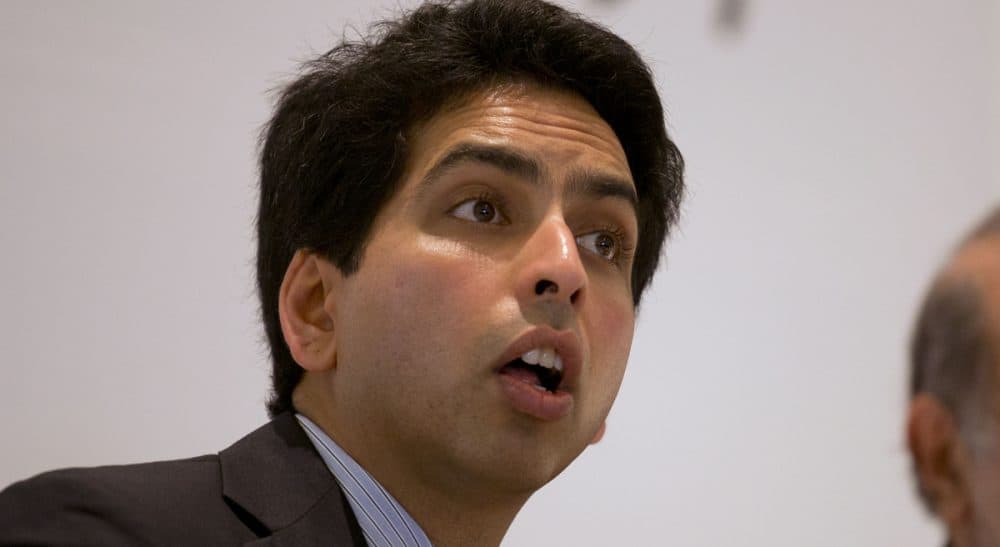Advertisement
Are Teachers In Brick-And-Mortar Schools Even Necessary?

Khan Academy, an educational website created in 2006 by a former hedge fund manager, currently provides free online lessons to over 10 million students per month. With access to over 5,000 videos and 100,000 practice problems, students receive instruction in virtually every subject, including history, literature, math, physics, economics, chemistry, and even cosmology and astronomy. The rapid growth of Khan Academy raises a serious question: If Khan Academy, just one of among many similar sites, can deliver personalized content in a faster, cheaper, and more effective manner than our current model, would the billions of dollars that states spend on teaching salaries each year be better used to equip each student in America with a brand new personal computer? To push even further, are teachers in brick-and-mortar schools even necessary?
Too often veteran educators dismiss such questions as the product of evil technocratic minds, too busy coding in their Silicon Valley cubicles to appreciate the vital role that teachers play in the classroom. As an educator myself, I think this defensiveness is misguided. Teachers cannot continue to pretend that new technologies do not represent existential threats to the profession. Only by coming to terms with the fact that traditional roles have been undermined will teachers discover new ways to fulfill a goal that all educators, both techies and non-techies alike, share — transforming the lives of students.
Teachers must concede that we are no longer the most important purveyors of information for students. This radical shift represents an unprecedented departure from long-established practices dating back to early medieval universities, where students depended upon their instructors, often versed in Greek and Latin, to transmit knowledge about the world around them. Up through most of the 20th century, students had no alternative but to get to school each day to receive instruction from their multiple subject teachers, who often taught using expensive textbooks few students could afford to purchase.
Teachers cannot continue to pretend that new technologies do not represent existential threats to the profession.
This monopoly on information is over. Now, due to alternatives like Khan Academy, the vast amount of high quality resources available through online education sites makes even the most knowledgeable of teachers look quite limited, not to mention boring. Students can choose any number of personalized interactive exercises online, often geared to a specific theme or real-world application, that automatically adjust the level of difficulty depending upon mistakes made. At no cost. This setup leads to an experience that is both more edifying and more engaging than listening to your old Algebra teacher lecture in front of a class for 45 minutes straight.
In light of this transformation that will only continue to intensify over the next decade as new technologies emerge, educators must reorient themselves in relation to their students. Teachers of the future must fulfill three main roles. First, teachers should play the role of curator, helping students navigate the endless stream of information that inundates them every time they search the web, scan their Twitter feed, or tune into cable television. A computer can’t teach students the ability required to determine the difference between reasoned argument and impassioned polemic, a crucial distinction to grasp if our students are to become enlightened citizens. A computer can’t teach students that Wikipedia is not the ultimate arbiter of truth.
Secondly, teachers should play the role of facilitator, nurturing an environment in a classroom where students learn how to interact with those who may look, sound, or act differently than them. Shifting pedagogy away from lectures and towards class discussions is no longer just a simple strategy to vary class activities, but rather than an imperative in the era of online education. Students don’t need a lecture on Martin Luther King Jr. when they can watch hundreds of thought-provoking and illuminating videos about his life online. But they do need to know how to prepare for a debate about the effectiveness of civil disobedience.
In the Khan Academy era, content expertise can be outsourced to machines, but moral leadership cannot.
Finally and most importantly, teachers must continue to fulfill the one role that has remained constant since Socrates first engaged his Athenian interlocutors: acting as principled role models who model the civic virtues that we hope to instill in each of our students. This point may seem obvious to some or self-righteous to others, but it is worth reminding both teachers and non-teachers that students are constantly observing the actions of the adults whose ideas and perspectives they value. By demonstrating intellectual curiosity, empathy, and integrity, teachers can help students develop an ethical foundation that will guide them in a future age shaped by technologies that are impossible to even imagine. In the Khan Academy era, content expertise can be outsourced to machines, but moral leadership cannot.
Related:
